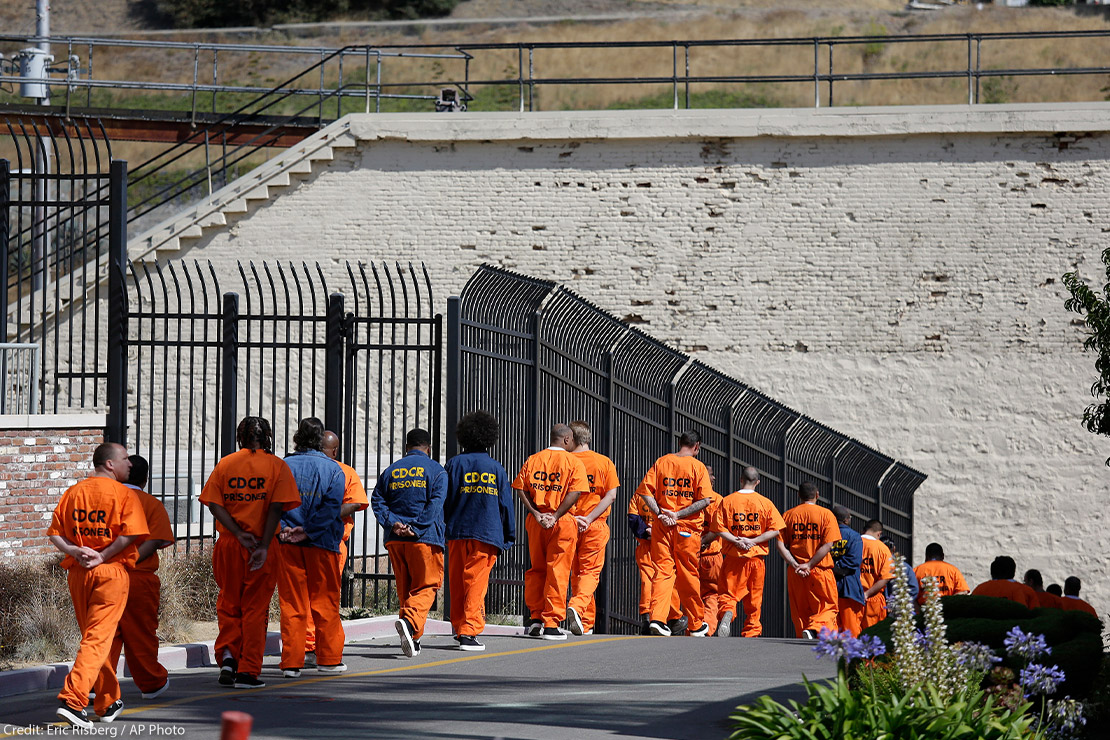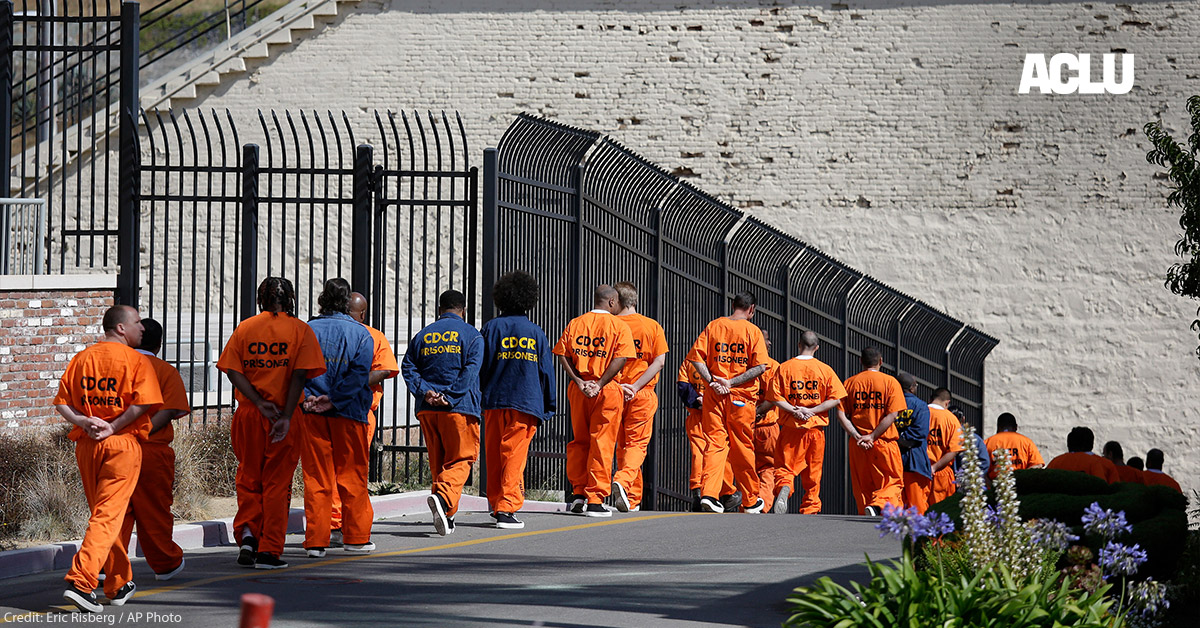I am tired of members of my profession dismissing my clients’ humanity. Sadly, it happens a lot:
“Your clients are probably lying to you, which is unsurprising,” reads an email from a representative of the Texas State government.
“People get better medical care in jail,” claim people who have never been incarcerated a day in their lives as reason to keep people locked up during this pandemic.
“We can’t trust inmates to follow the law, so how could we trust them to quarantine from others if they were released?” asks a judge who swore an oath to protect the fundamental rights of these “inmates.”
It should not be news to anyone that the scales of justice are tipped in favor of the powerful, but it’s never been starker to me than now. I’ve spent the last six months on the frontlines of the legal battle to protect incarcerated people from preventable illness and death as jails and prisons fumbled their response to the COVID-19 crisis. What I’ve seen is a chasm between the courage and humanity of my clients — people discarded in crowded facilities trying against all odds to follow public health guidelines — and the officials who incarcerate them: bureaucrats ever ready to point the finger elsewhere as they deny incarcerated people adequate food, water, PPE, cleaning supplies, testing, the ability to socially distance, and subject COVID-positive patients to pepper spray.
More than 1,000 incarcerated people have died from confirmed cases of COVID-19, and 88 of the top 100 largest outbreaks in the country are in jails and prisons. Even this paints an incomplete picture: Around the country, we’re seeing facilities refuse to provide COVID-19 testing to incarcerated people to keep reported numbers artificially low. In Arizona, officials reportedly went so far as to order incarcerated people to refuse COVID-19 tests or else face a “beat-down.” Other jurisdictions, including in Texas and California, simply ignore COVID-19 case counts in prisons in order to increase their chances of reopening.
And when we sue to hold these legal system actors accountable, it increasingly becomes obvious: They are lying to maintain the status quo, despite the risk it poses to our clients.
The philosophy behind our legal system is that adversaries — usually lawyers — present evidence to a judge or jury, engage in vigorous advocacy, and the truth should win out. Even in ordinary times, this is a myth for most people accused of crimes: Public defenders are given vastly fewer resources than law enforcement and prosecutors, and the overwhelming majority of criminal cases are resolved by plea bargaining instead of trial (often to avoid the additional prison time that comes with exercising trial rights). When people do demand their day in court, decades of “tough on crime” rhetoric have manifested in juries and judges who view arrested people — particularly Black and Brown people — as presumptively guilty instead of innocent.
Unfortunately, in the COVID-19 context, judges continue to favor the demonstrably untrue accounts of jail officials over those of incarcerated people who testify at great personal risk. For example, in Memphis, Tennessee, the chief jailer testified under oath that the jail was following a policy of not returning a COVID-positive person to the general population until they had twice tested negative for COVID-19. He even said that failure to do so would create a high risk of transmission. However, his staff and colleagues had never implemented this testing policy and routinely moved COVID patients back into the general population without testing.
Government officials routinely employ this strategy of plausible deniability: Supervisors who brush aside evidence of daily practices testify that all is well, while the reality is bleak for incarcerated people, as well as prison and jail staff. The temerity knows virtually no bounds: As incarcerated people suffer severe illness and die, jurisdictions like Miami and Orange County filed legal appeals to save themselves from the grave injury of having to provide detainees with soap.
Yet, the officials who I feel the most betrayed by this year are our federal judges. Federal judges are uniquely entrusted to protect the constitutional rights of all. Their lifetime appointments are meant to ensure their total independence and ability to fairly protect the rights of even those without political or social influence. The federal judiciary — at least in principle — is our government’s best hope to protect the rights of the systemically oppressed.
Many recent legal rulings on important matters of public health have fallen short. Many trial courts have cherry-picked evidence or misapplied the law to rule against incarcerated people. And when trial courts find that our clients’ rights were violated, courts of appeals ignore the record and go out of their way to reverse course — most notably when the Supreme Court recently paused a court order requiring increased protections in the Orange County Jail without offering any explanation, and despite rising COVID infections and dishonesty by jail officials (called out as “bad behavior” by Justice Sotomayor in her dissent).
While profoundly disappointing, these pro-incarceration instincts track the composition of the federal bench. Seven times more federal judges are former governments lawyers (prosecutors and civil attorneys) than lawyers who brought challenges to government action; 80 percent of federal judges are white — despite the vast racial disparities the criminal legal system perpetuates — and 73 percent are men, despite the fact that women have been the fastest growing population in prisons and jails for decades. Judicial nominees from presidents of both parties have overwhelmingly been former prosecutors and corporate attorneys: 85 percent of President Obama’s nominees had one of those backgrounds.
Representation and fair adjudication of cases have always mattered. This year, a lack of judges who understand the true horrors of our incarceration machine meant that incarceration has been a death sentence for far too many people. The United States’ unique obsession with mass incarceration also means that the pandemic is harder to mitigate here than in other countries without these super-spreader sites.
The next President has a moral and institutional obligation to appoint judges who will counterbalance this bias against people who have been accused or convicted of crimes by appointing judges who are civil rights advocates and criminal defense attorneys, not just private corporate attorneys and prosecutors. Given how overwhelmingly lopsided our current judiciary is, the next President should aggressively appoint judges with underrepresented backgrounds to help restore our judiciary’s independence and our national trust in our courts.
I am tired of the disdain members of my own profession exhibit toward my clients. However, some of this comes with the territory of combatting our national obsession with incarceration. What should not be expected, or tolerated, is the absence of a fair and impartial judiciary who will tip the scales of justice back into balance.
Date
Tuesday, September 15, 2020 - 1:00pmFeatured image


